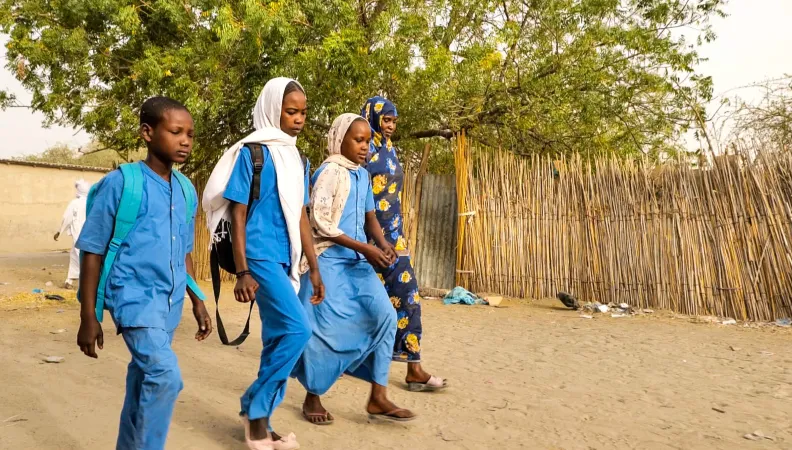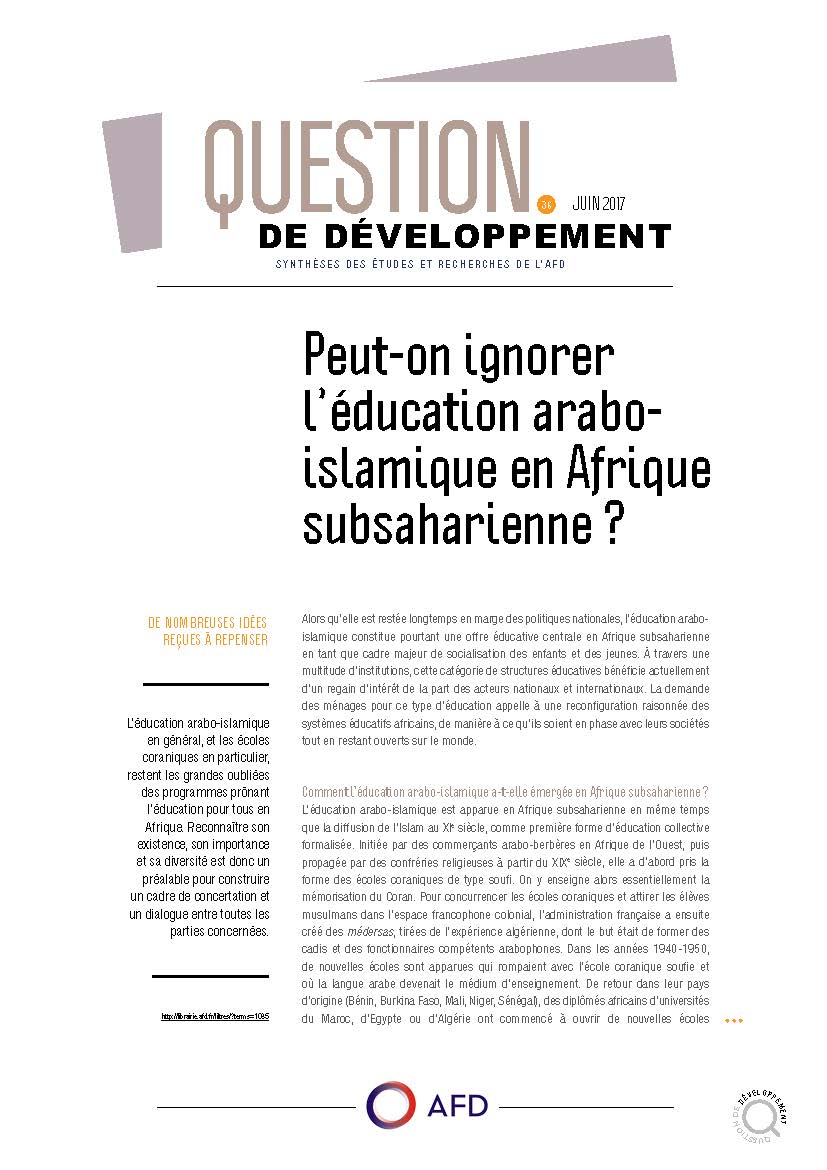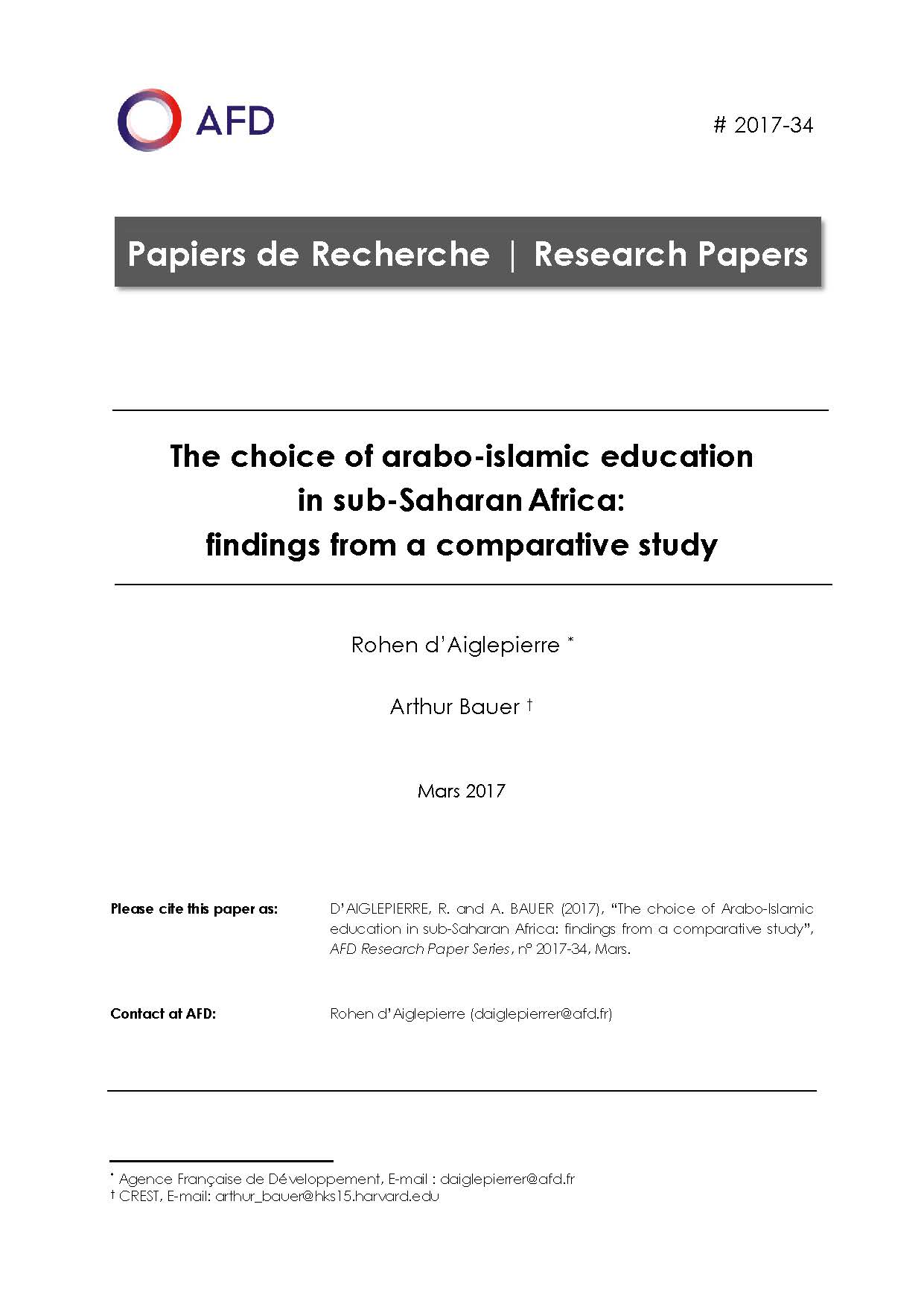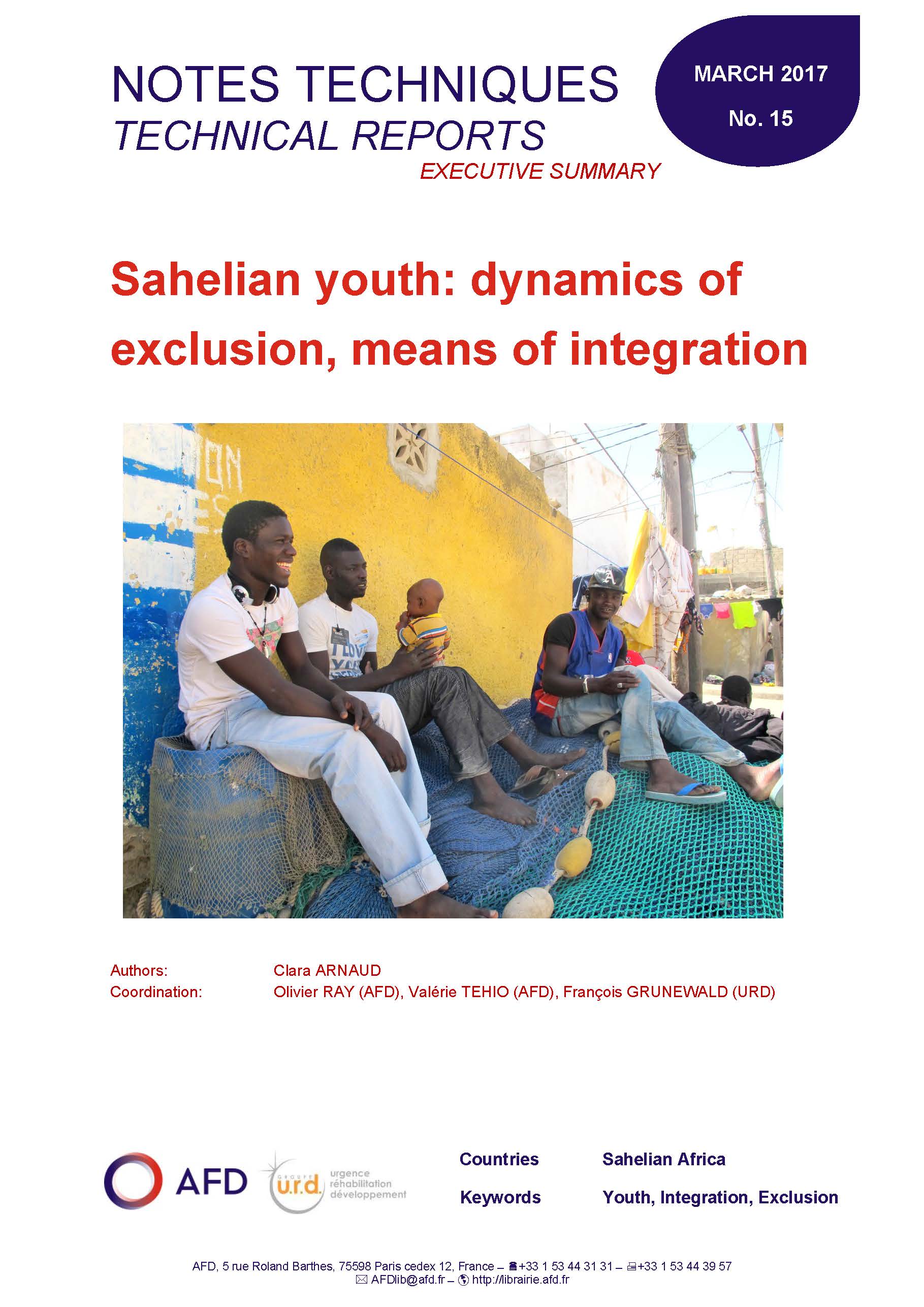 Schoolchildren in Chad. Arab-Islamic education in the Sahel remains poorly understood, despite being a key component for grasping and managing the region’s education systems. This research project, entrusted to IRD, aims to improve knowledge about this educational offering, its learners, and how it is addressed by public policies—ultimately to inform the decisions of policymakers in the Sahel region.
Schoolchildren in Chad. Arab-Islamic education in the Sahel remains poorly understood, despite being a key component for grasping and managing the region’s education systems. This research project, entrusted to IRD, aims to improve knowledge about this educational offering, its learners, and how it is addressed by public policies—ultimately to inform the decisions of policymakers in the Sahel region.
Context
While significant progress has been made in access to education in the Sahel since the 2000s, major challenges remain in terms of access, quality of teaching, and reducing inequalities—particularly between girls and boys, and between urban and rural areas.
In this context, many school-age children are educated through religious-based, mostly Arabic-language education systems rooted in Islam. Deeply embedded in many societies, this so-called “Arab-Islamic” education is highly diverse. It spans a continuum from highly informal, family-based units focused exclusively on religious instruction, to more formal institutions that are partially or fully integrated into public education systems, as well as a range of evolving, intermediate forms.
This widespread educational reality cannot be ignored in the design of local public education policies.
READ IN THE CONVERSATION
Arab-Islamic education in Sub-Saharan Africa: going beyond clichés to build the future
Objectives
The purpose of this study is to contribute to the production of updated and relevant knowledge on Arab-Islamic education in the Sahel—a complex and deeply rooted phenomenon that is widespread across Sahelian societies but remains largely overlooked by both research and public policy. The project also aims to inform policymakers in Sahelian countries, as well as international donors, by providing them with the information needed to design and conduct education policies.
A nuanced understanding of the various forms of arabo-Islamic education is a prerequisite for any intervention—whether to regulate the most controversial practices, to integrate this educational offering into national education and vocational training policies, or to support a system that may prove particularly relevant in times of crisis, especially in the context of insecurity.
Method
As the first large-scale study of arabo-Islamic education across six Sahelian countries, this research project was conducted by a multidisciplinary and multinational research team, coordinated by Dr. Hamidou Dia (IRD).
The project relied on extensive inventories—including inventories of existing research, grey literature, educational institutions, quantitative data, and press articles—combined with field surveys and interviews with key actors involved in Arab-Islamic education. A series of research workshops and stakeholder dialogues helped discuss research findings, feeding into the development of country reports and a regional synthesis (available in the section below). All reports followed a common framework to allow for cross-country comparisons and the identification of transnational or regional trends.
Results
The study confirms the dynamism of Arab-Islamic education in the Sahel, shown in particular by the renewal of audiences. In Chad and Niger, more than 50% of students are girls, and the presence of the middle classes has increased. The re-emergence of Arab-Islamic universities in some countries (notably in Niger and Mali) also shows this dynamism.
The study highlights the diversity of Arab-Islamic education funding resources, which vary widely from country to country and from school to school. Depending on the context, the importance of resources coming from abroad gives a significant weight to foreign actors and dynamics in the evolution of Arab-Islamic education.
The study also shows that the positioning of this offer vis-à-vis the State varies according to the actors, schools of thought, forms of intervention and methods of financing. Depending on the type of educational offer, the place of residence or the profiles of the pupils, Arab-Islamic education can either be complementary to or a substitute for classical education, which is the case especially in regions where public services are destabilized.
You can find below the various research papers related to this research program:
Research findings
This study confirms the existence of a plural and evolutionary educational offer, with the emergence, in recent decades, of new formats, sometimes pushing towards a modernization of education, sometimes towards a return to traditions, with tensions between actors and/or important intra-national divisions around religious and linguistic issues.
The positioning of this offer vis-à-vis the State and the institutions varies. In some countries, attempts at reform by the State ended up in crystallizing tensions and confirmed the duality of the system. Nevertheless, the growth and dynamism of this educational offer in the region calls for a deeper exploration of the possibilities of establishing bridges with secular education.
Highlighting the diversity of this educational offer and the actors who carry it, this research project helped to understand better Arab-Islamic education and to guide the decision-making of AFD, its Sahelian partners or donors.
Contacts
- Dr Hamidou Dia, socio-anthropologist, research officer at IRD
- Linda Zanfini, research officer at AFD
Read also



 This project aims to strengthen skills and synergies in a regional centre of expertise in international development, located in the city of Clermont-Ferrand (France), and its international outreach. This involves funding training activities and research capacity building for stakeholders from the Global South (executives, young researchers, etc.), as well as research activities on development.
This project aims to strengthen skills and synergies in a regional centre of expertise in international development, located in the city of Clermont-Ferrand (France), and its international outreach. This involves funding training activities and research capacity building for stakeholders from the Global South (executives, young researchers, etc.), as well as research activities on development.
Context
Clermont-Ferrand is a hub of expertise in development economics recognized at the French and international level, thanks to the research activities of the Foundation for Studies and Research on International Development (FERDI). Training courses aimed at executives and future decision-makers in the countries in the Global South, provided in particular by the Centre for International Development Studies and Research (CERDI) since 1976, also contribute to this recognition.
The presence of a branch of the Global Development Network (GDN) will now strengthen this hub. This international organization's mission is to strengthen research capacities in Global South countries wishing to benefit from the city's dynamic context.
Through AFD, the French State supports the research and training activities of the Clermont International Development Hub and the establishment of the Clermont-Ferrand branch of GDN within the framework of a single project. This project aims to strengthen the ecosystem of local expertise and to develop synergies between the actors concerned for the benefit of their partners in the Global South.
Goal
This project has three complementary objectives:
- Support for the creation in Clermont-Ferrand of a branch office of the GDN, to enable the network to continue from France its flagship activities (such as its annual conference and the Global Dev blog), as well as to launch an ambitious programme to simultaneously fund research production and capacity building of African research institutions;
- Support for FERDI’s research activities, to enable the foundation to gain visibility and influence on sustainable development issues;
- Strengthening of FERDI’s training activities in partnership with the University of Clermont-Auvergne, including the Master’s degree in “Project Management for Development” (MODEV), which specifically targets executives in countries in the Global South, and setting up additional training activities (development of short and/or distance courses, support for doctoral courses in the South).
Results
The expected impacts of the project are:
- For the actors of the Clermont Hub: strengthening the influence and outreach of the Clermont pole and its actors, allowing them to become a reference on development issues in national and international debates.
- For the partners of the Clermont hub in the Global South, and in particular in French-speaking Africa:
• Improving the skills of managers who receive training (women and men) in the management of development policies and projects;
• Strengthening the research capacities of researchers and partner institutions in the Global South on sustainable development issues, as well as their capacity to participate in public debate;
• Development and/or consolidation of networks of researchers and learners in beneficiary countries;
• Improved public policy dialogue, so that development policy-making in AFD’s partner countries can benefit from the insights of locally based research.
Contact:
Linda Zanfini, research officer at AFD
